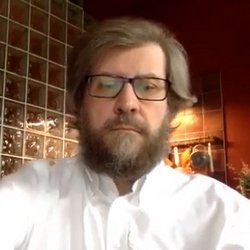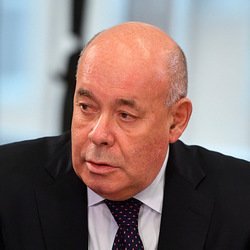“This is not our war”: what Russia's place in confrontation between the US and China?
Against the background of the pandemic, which has sharply accelerated structural changes in politics, economy, technology and social processes, a new bipolar world has begun to strengthen, with the US at one pole and China at the other. What is Russia's place in the new system and what steps should it take? Is the friendship between our country and China, which we now obviously sympathize with, so strong? How will the pandemic and the new bipolarity affect weapons control and should we expect a nuclear war? These and many other questions were answered by participants of the Primakov Readings online session that took place on 31 May. Read the details in the material of Realnoe Vremya.
“It's not the bipolarity of the cold war era”
Experts who took part in the first online session of the Primakov Readings agreed that the key event in world politics now is the sharp deterioration of the US-Chinese relations.

Against this background, there is an emerging disturbing trend of the world sliding towards a new bipolarity. During the cold war, the USSR, the United States and their allies were at different poles. According to Aleksey Arbatov, the head of the IMEMO RAS Center for International Security, this was a very dangerous time, but Moscow controlled the events to some extent. In the new bipolarity, one of the poles will be China, not Russia.

According to the speaker, this is not being observed now because China, with all the specifics of its worldview and culture, “does not present any ideological challenge to the West”. “The Chinese are not going to create collective farms in Michigan and operate in the same paradigm of global capitalist economy as the United States.
This brings us back to a completely different era. In my opinion, this is not the bipolarity of the cold war era, but rather something that resembles one of Lenin's works 'Imperialism, the Highest Stage of Capitalism'. I am afraid that we are now moving towards this state," says Lukyanov.
“This is not our war”
In this case, what should Russia do? What role will it play in the new world order? Alexander Dynkin believes that our country is now facing a new role as a balancing power. At the same time, it would be quite reckless for us to definitely take one side or the other. The expert advises taking into account that Russia's current relations with China are rather determined by the formula “never against each other, but not always together”.

In turn, the editor-in-chief of Russia In Global Politics magazine, Fedor Lukyanov, believes that Russia should not try to influence the strengthening of the new bipolarity.
“I honestly do not see any arguments that could make us support the United States in this confrontation, given the way they behave towards Russia. At the same time, as Vladimir Putin said (sometimes in a half-joking, and sometimes in a completely serious manner): 'This is not our war.' The war for world domination, what they are waging is their business. We participated at the time, but we won't do it again. In this regard, the position of benevolent neutrality with sympathies for China is quite adequate. But in general, this is their problem," the expert believes.
“The UN should follow the path of reforms”

“What you should keep as the apple of the eye is the UN. And it is precisely in the part that concerns the Security Council and the right of veto, since this is the greatest achievement of political thought, the replacement of a great war. When it was agreed in 1945 that instead of going to war with each other, the great powers could simply block what they did not like, it was a great success. If we lose this, war will be inevitable," Fyodor Lukyanov suggests.
At the same time, MGIMO Rector Anatoly Torkunov, who agreed that “we need to value the UN highly and do everything possible to preserve it”, believes that the current crisis has shown not only the insufficient capacity of the United Nations to address the issues that have arisen now but also drew attention to the need for its reform.
“Over 75 years of the UN's existence, the world has changed enormously, and the organisation itself has remained the same as in 1945. All attempts to reform it have not yet led to any real results. The UN should follow the path of reforms," agrees Aleksey Arbatov, the head of the IMEMO RAS Centere for International Security.
“As a result of the pandemic, the world can be thrown back to the '50s”
An equally important topic for discussion is arms control. As Aleksey Arbatov said during the session: “The pandemic will pass sooner or later, but nuclear weapons will remain, and with them the threat of nuclear war will continue.”
The expert points out that the coronavirus epidemic has already had a negative impact on weapons control. For example, all planned trips of Russia and the United States related to the New START have been temporarily suspended. Also, due to the pandemic, the next review conference of the Treaty 'On the non-proliferation of nuclear weapons', which turned 50 this year, was not held. The meeting, which deals with the most pressing issues related to the non-proliferation of nuclear weapons, has been postponed for a year, and during this time the situation may significantly deteriorate.
“As a result of the pandemic, the world can be thrown back to the '50s — at a time when there was an arms race, but there was no control system. We all know what the world has come in those years is the Cuban missile crisis. Then only a miracle saved the world from disaster," said Aleksey Arbatov.
The expert also called on the session participants to pay attention to the fact that, according to the calculations of the American strategic command, a nuclear strike that the US was then going to inflict on the Soviet Union, China and their allies would have killed 800 million people within a few months.